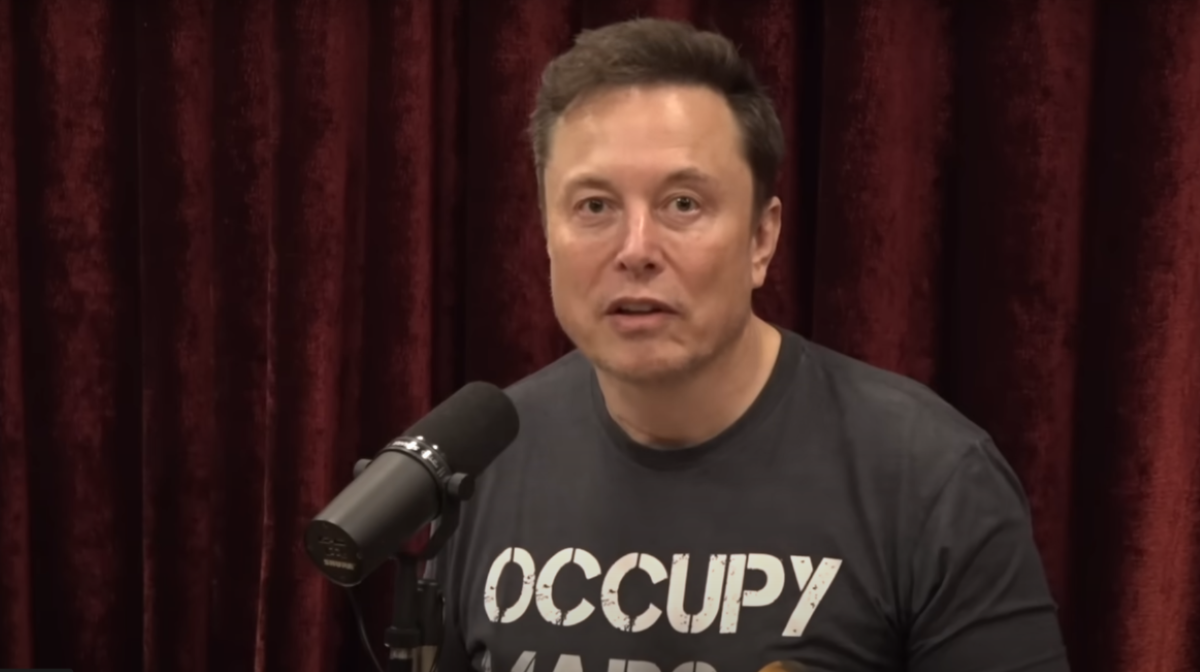
The basic income. The individual mandate. Cap and trade. Income-tax withholding. What do all of these ideas have in common? They are all schemes for implementing a massive and ever-growing welfare and regulatory state—and they were all brought to you by people on the Right.
The basic income is the brainchild of Charles Murray. The individual mandate originated from a Heritage Foundation proposal. Cap and trade was floated by libertarian “free-market environmentalists.” And what about income-tax withholding, the mechanism that makes it possible to tax a third of our incomes without outright rebellion? That was invented by Milton Friedman.
Now here we go again. The latest proposal is not quite on the same scale, but it’s a microcosm of how people on the Right, who otherwise see themselves as advocates of free markets and small government, have allowed the big government mentality to take up residence inside their heads.
Last week, Kristin Shapiro and Andrew Biggs (of the American Enterprise Institute) made an original new proposal in the Wall Street Journal for how the federal government could provide generous paid “family leave” for new parents. Here’s the basic idea.
Offer new parents the opportunity to collect early Social Security benefits for a period—say, 12 weeks—after the arrival of their child. To offset the cost, parents would agree to delay collecting Social Security retirement benefits, probably for only about six weeks.
We estimate that to make the Social Security program financially whole, a parent who claimed 12 weeks of benefits would need to delay claiming retirement benefits by only around six weeks. The cost is low because parental-leave benefits claimed early in life would be low relative to retirement benefits claimed later, as earnings typically rise considerably from one’s 20s to one’s early 60s…. Consider an average woman, who enters the workforce at 21 and has her first child at 26. At 25 she would have a salary of about $31,100, according to Social Security Administration data. Using the same formula used to calculate Social Security disability benefits, she would be eligible for a Social Security parental-leave benefit of $1,175 a month, equal to 45% of her earnings at 25…. Because of Social Security’s progressive benefit formula, lower-income workers would receive a higher benefit relative to their earnings.
The idea has also been taken up in the New York Times by The Federalist’s own Ben Domenech, as advice on “How Trump Can Be More Trumpian,” as if that were a good thing.
At the urging of the White House, this idea has already been taken up by some Republicans in the Senate, who have been briefed on the concept and are on the cusp of drafting legislation. It is receiving early support from both conservative and moderate members of the Republican conference, and Ivanka Trump has discussed it at length with at least one—Senator Mike Lee of Utah. Support from Mr. Lee, one of the most conservative members of the party, would be crucial to passing a bill.
As Republicans work to make traditional conservatism and populist Trumpism coexist harmoniously inside their party, creativity is required to achieve compromises on policy goals. By making paid family leave a signature issue for 2018, President Trump would be embracing an idea at the heart of his 2016 success: that he is the one Republican willing to break with party norms to help working- and middle-class Americans.
Now, I like Ben and respect Ben, and I’m not just saying that because he can fire me. (Please don’t fire me, Ben.) A number of the people involved in this proposal are people who I otherwise regard as allies in the cause of liberty. But I feel like I’ve seen this movie before.
This is the essence of the kind of nanny state we’ve talked ourselves into over the last 80 years: the idea that the most basic tasks humans have been doing for thousands of years—such as parents caring for their children—suddenly can’t be done unless the government subsidizes us to do them.
In fact, these things are now easier for us to do ourselves than they have ever been before. Let’s take a look at this benefit that we supposedly need government to provide. The proposal would provide our average 26-year-old woman, who is making a little over $30,000 a year, with $1,175 per month over three months, for a grand whopping total of $3,525. This woman began working at 21, so she has been in the workforce for five years.
Assuming there is a father who is able and willing to help support her—and if there isn’t, then we actually have a much bigger problem, something I hope conservatives would understand—then we’re talking about a couple who have together been making somewhere between $40,000 and $60,000 a year for five years. They have had perhaps $250,000 of income to draw on over that period—and we’re supposed to assume they could not divert a little more than 1 percent of that to plan for having a child? Maybe they should have gone easy on the avocado toast.
Planning, by the way, is what most of us do for important decisions like this. Some of us even put off having kids until we think we can afford them. Back in the days before contraceptives, it was expected for a man to delay getting married until he could show he had a steady job and a little savings—enough to convince his bride that he was capable of supporting a family. And they did that with lower incomes and a far lower standard of living than today. It’s amazing what people will do when you expect them to be responsible for themselves.
Ah, but why not take some money from future Social Security benefits? What’s the cost? Well, funny you should mention Social Security, because under this proposal our young couple are not in fact drawing from their own future benefits. That’s not how Social Security works, and everybody knows it. Biggs, the co-author of the Wall Street Journal article, knows this. Reviewing one of my old articles on the topic, I found that I once quoted a scholar comparing Social Security to a Ponzi Scheme and even to Bernie Madoff. Guess who it was?
The fact is that the family leave payments you take now would not come out of your future benefits. That money comes out of the taxes paid by current workers—including yourself. Let’s go back to our fictional young couple. They have earned somewhere in the neighborhood of $250,000 over the years before the birth of their child. On that, they have paid 6.2 percent in Social Security payroll taxes, or $15,500. In addition, their employers have had to match that amount, an additional $15,500 in payroll. No wonder they can’t save money to take time off to spend with their newborn! In their short working lives, they have been looted by Social Security taxes to the tune of $31,000.
But surely the amount they have paid in payroll taxes is money they have put into the system and is owed back to them, right? Again, that’s not how this works, and everybody in Washington knows it. There is no account earmarked for specific recipients. The money is already spent on somebody else. All we have is a promise of future benefits—a promise which, for most of us, it will be mathematically impossible for the system to fulfill. Our current national plan for dealing with this is to pretend it’s never going to happen, to keep the system going without any change until it runs out of money, then deal with it ad hoc, probably by cutting benefits.
The basic problem is hinted at when Shapiro and Biggs argue for their idea by saying that “we think the federal government could provide Social Security parental-leave benefits without endangering…Social Security’s already precarious finances.” If the program is so precarious, then why are we appending a new benefit to it? If paid parental leave is such a good and worthy goal, why would we piggyback it onto an existing program with a doubtful future?
We are eventually going to have to make major reforms and retrenchments in Social Security, and this new scheme would make it that much harder by increasing the public’s attachment to the program and adding one more item to the list of free-money goodies that those evil Republicans are trying to take away.
The only pro-reform argument I’ve heard for this proposal is that it will help establish in people’s minds the idea of accepting slightly later Social Security benefits, preparing them for the increases in the retirement age that will eventually be necessary to keep the system solvent. But who really thinks this is the big issue holding back Social Security reform? Do people oppose any change to Social Security because they just can’t conceive of getting their benefits two years later? Not in my experience.
Every time I have ever discussed the issue, even with nominally small-government Tea Party types, the most vigorous objection I’ve heard is that this is my money. People think they’ve paid into the system and are owed something back. They have never internalized the real truth that Social Security is a straight redistribution of income from current workers to current retirees, and they insist on treating it like some kind of personal investment fund. This is the Big Lie of Social Security, and the new proposal basically endorses it by presenting future benefits as a personal fund to be drawn from, as if you’re just raiding your 401(k).
The great evil of Social Security is that it is designed to convince the most prosperous middle class in human history that they are economically helpless and need to depend on government. It does this by following the classic big government playbook of burning down your house and showing up with the fire truck. Social Security displaces personal savings by draining off most of the 15 percent of your income experts recommend you should be allocating to retirement. Then when people have saved far less than they are supposed to, Social Security comes sailing to their rescue—by paying them benefits much lower than what they could have earned by investing on their own. This is the sort of thing Thomas Jefferson had in mind when he warned against “wasting the labors of the people, under the pretense of taking care of them.”
The family leave proposal further entrenches this kind of learned helplessness, cementing the notion that there is no good and worthwhile thing anywhere that the great, prosperous American middle class could possibly be expected to do for themselves.
Watching this idea gain rapid acceptance among so many on the Right made clear to me why we never seem to move any closer to small government, low taxes, and a free economy. Too many people on the Right have let the welfare state mentality into their heads, where it becomes their only framework for looking at the world. It’s a framework in which we are all permanently helpless and in need, and in which only a new government program designed by clever and well-intentioned wonks, spending money from who knows where, can help us lead decent lives.
If you accept this framework and think piling a new benefit onto Social Security is a good idea, then don’t bother asking why we have a giant, bloated welfare state. Don’t ask why we have a government that spends $4 trillion every year. Don’t ask why we can’t repeal Obamacare, or why big government is always a one-way ratchet. Don’t ask why Republicans can never seem to make good on any of their promises about shrinking government. And don’t ask why we always end up having to be the penny-pinching managers who clean up after the Democrats’ latest spending spree—because that is the role you have accepted.
As for me, years from now when we’re desperately trying to reform Social Security and Democrats scream that we can’t possibly touch it because of the family leave benefits, I’ll just shake my head and have to admit that my friends helped dream that one up.
Follow Robert on Twitter.









